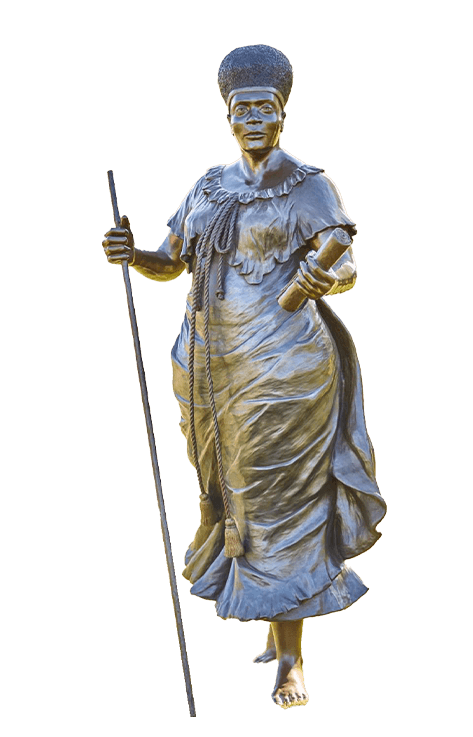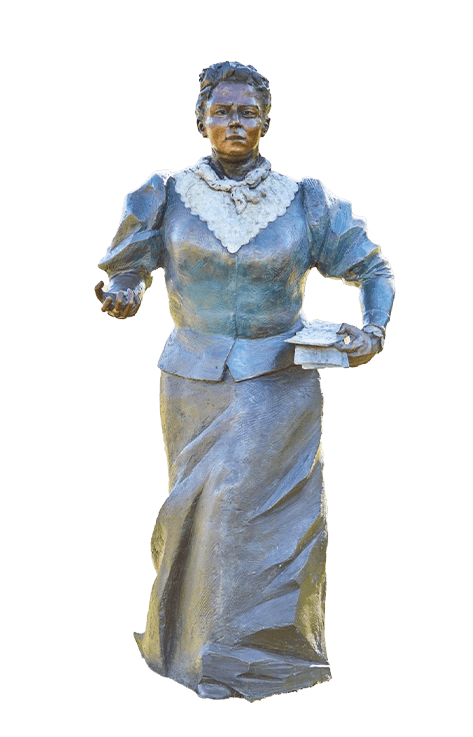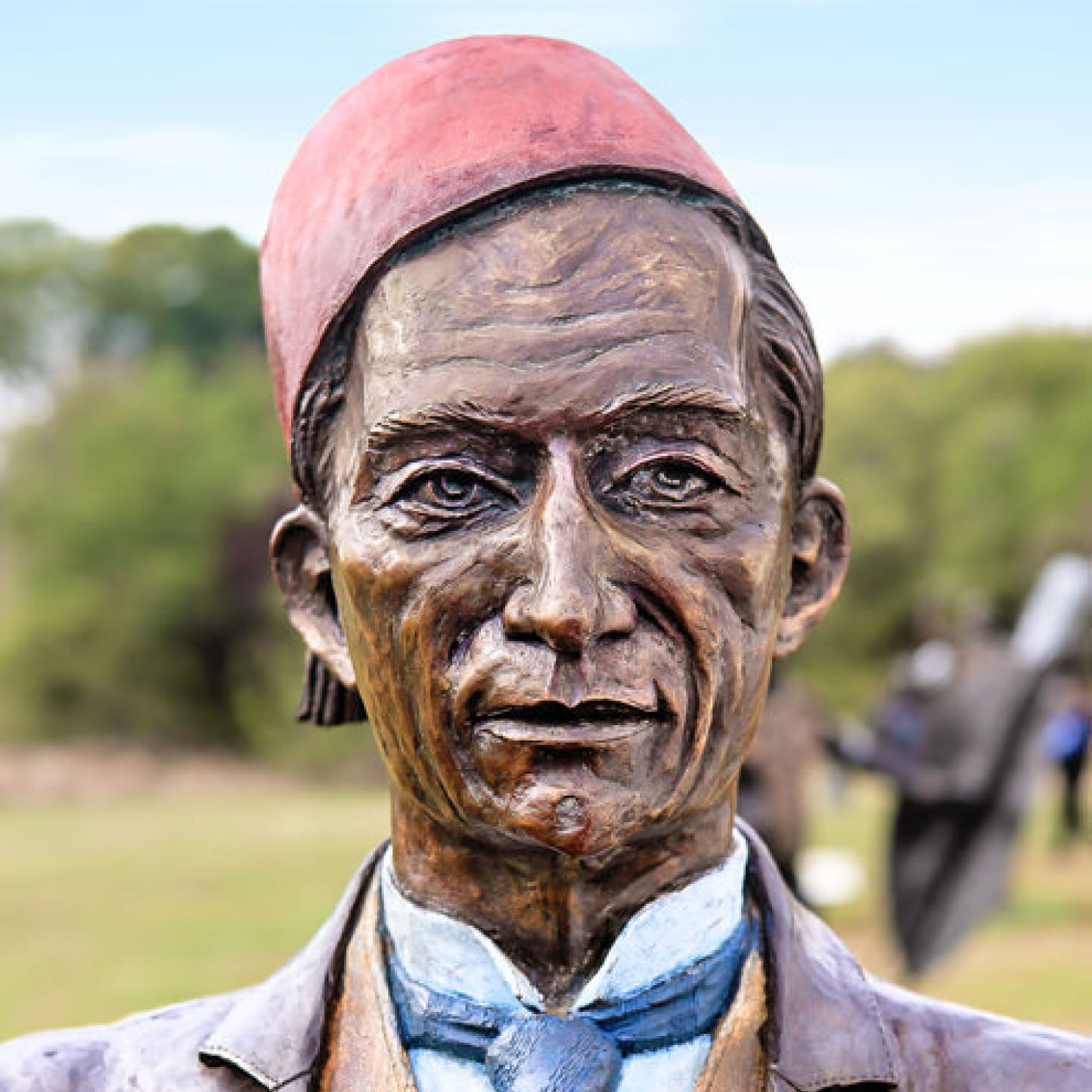
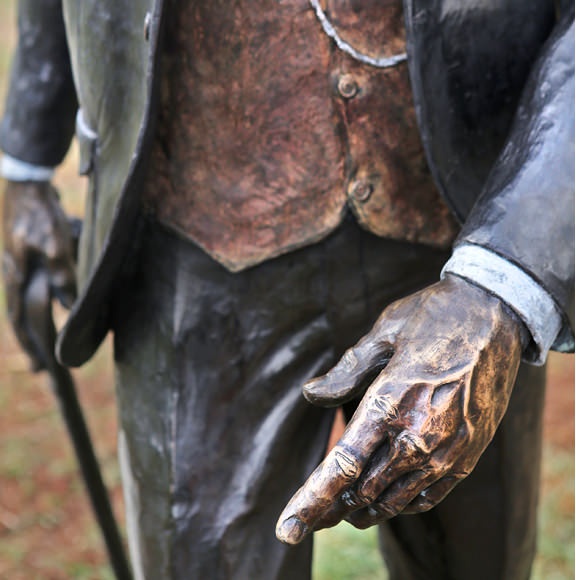
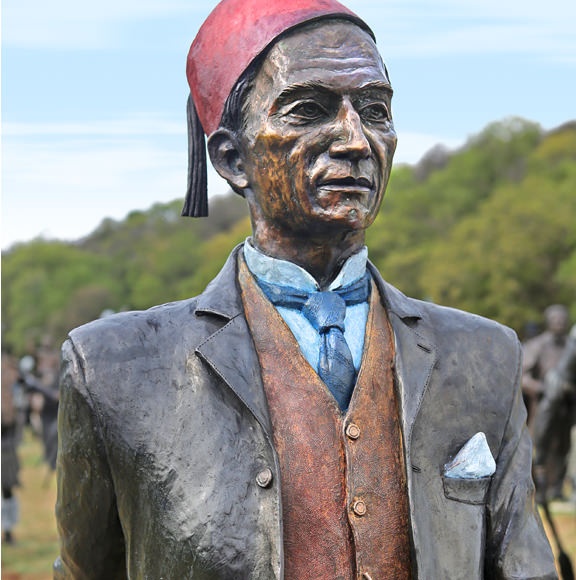
"We, the Indians resident here, demand that we be allowed to live in peace and happiness. In fact, we should have more rights than the non-British whites. They complain, because a few of us might have entered the Colony without permits. I make bold to say that, if only the Government would send three constables with me, I shall forthwith have a thousand permit-less whites arrested."
Excerpt from a speech given by Hadji Ojer Ally at the historic meeting at the Empire Theatre in Johannesburg, signalling the start of the non-violent Satyagraha campaign, 11 September 1906
Hadji Ojer Ally
1853 - 1922
First Chairperson of the Coloured People’s Association, First President of the Hamidia Islamic Society, Pioneer of the Congress Movement
Hadji Ojer Ally was born in Surat, India, but moved to Port St Louis in Mauritius when he was five.
As a young boy he worked in a news agency and would go down to the harbour to watch the ships pass by. Meeting people en route to Cape Town was his first introduction to South Africa and he was fascinated to hear from passengers what life was like for Muslims in the colonial capital of Cape Town. After his father's death he and his mother set sail for South Africa, possibly influenced by these interactions.
The enterprising Ally set up a distillery brewing cold drinks in Cape Town. He opened a second plant in Kimberley, and later ran a fruit and vegetable wholesalers in Johannesburg.
Ally first became involved in politics while in Kimberley. He moved easily between the Indian, Coloured and African communities and in 1893 helped establish the Coloured People's Association (CPA), a political organization for the advancement of blacks, promoting unity of all races. He became its first chairman. The CPA was the precursor to the African Political Organization, which counted Ally amongst its founding fathers when it was established in 1902.
He took an active part in the affairs of the Muslim Community and in 1906 founded the Hamidia Islamic Society, primarily a Muslim merchant's organization that followed the passive resistance tactics of the Natal Indian Congress, in the Transvaal.
The well-travelled Ally shared his knowledge of the politics of India, the Middle East, Mauritius and the British Empire, arguing for the rights due to all British subjects of colour.
Dapper and politically sharp, he was a close colleague of Mahatma Gandhi, often referred to as his right hand man. Ally was the young Gandhi's confidante, advisor, organizer, community liaison facilitator and financier, and he is credited with positively influencing Gandhi's political awakening when he arrived in South Africa.
He was often seen at Gandhi's side, dressed in a well-tailored suit and a Turkish style fez with a tassel signifying that he had made the pilgrimage to Mecca, worn slightly cocked upon his head, and a signature cigar in hand. Gandhi once recounted a humorous story of dinner with King Edward and the Queen following a visit to London in 1906 to protest the Transvaal Immigration Restriction Bill. Ally wore his signature fez and politely sent away a palace servant who brought a tray to put it on. The King was taken aback but the Queen diplomatically asked the servant to go, saying it is his religion.
Tribute has been made to Ally for his record of public work, his ability to cross ethnic and petty political boundaries and his success in the service of all the oppressed people in South Africa. As a spiritual leader in Vrededorp, Johannesburg, he enjoyed immense respect among his followers.
On his death, aged 70, his congregation wanted to declare him a saint (karamat). His children politely turned down the request, saying he never wanted to be recognized in this way. Until today, colourful shrouds are placed on his grave by the descendants of his followers.
